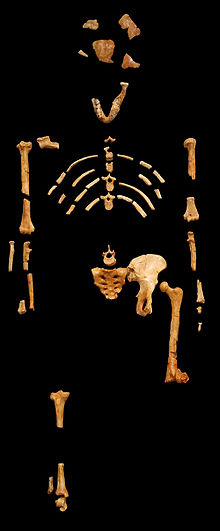The great Margaret Atwood has dystopic vision, an eerie end to us all: We build an ever-growing, plugged-in societal machine reliant on cheap energy that eventually runs out. Collapse comes, and we’re swept away with it. It’s a chilling, if unlikely, scenario.
More realistic: We keep shoveling fossil fuels into the system until it’s the death of us, or we wisely adapt ASAP and develop solar energy and such to the point were we can sustain life for eons.
In a Guardian piece that surveys science and sci-fi writers, Atwood, Richard Dawkins and others ponder the future of humanity, if we have one. The opening:
Richard Dawkins, author of The Selfish Gene and The God Delusion
There’s a serious risk of climate catastrophe and it could be soon. Another alarmingly plausible possibility during the present century is that weapons of mass destruction, which are designed to deter, will be acquired by deluded people for whom deterrence has no meaning. Assuming we survive such manmade disasters, external peril may be averted by technology growing out of the brilliant feat of landing on a comet. The dinosaurs’ world ended when a comet or large meteorite unleashed titanic destructive forces. That will eventually happen again, and smaller but still dangerous strikes are a perennial danger in every century. Telescopes of the future will improve the range of detection, increase the warning time, and give engineers the notice they will need to intercept the bolide and nudge it into a harmless orbit.In the world of science, DNA sequencing will become ever faster and cheaper and this will revolutionise medicine, taxonomy and my own field of evolution, not to mention forensic evidence in courts of law. Embryology and cell biology will advance mightily. Novel imaging techniques may enable palaeontologists and archeologists to see down into the ground without digging it up. The rendering of virtual reality will improve to the point where the distinction from external reality may become blurred. I expect unmanned space exploration to continue, albeit with economically imposed hiatuses. Out beyond 50 years, self-sustaining colonies may be established on Mars. Human travel to other star systems lies way beyond 50 years, but radio communication from extraterrestrial scientists is an ever-present possibility. However, the intervening light centuries will rule out conversation.
Margaret Atwood, author of Hag-Seed
Will we still have a liveable planet 50 years from now? Kill the oceans and it’s game over for oxygen-breathing mid-range mammals – the oceans make 60 to 80% of our oxygen. Superheating them and dumping them full of plastic may spell our doom. I hope that we’ll be smart enough to avoid this fate. From ideas proposed in my fiction, many are equally horrible, but it seems as if the use of the blood of young people to rejuvenate rich older people – as posited in The Heart Goes Last – is already in process. I do try to avoid predicting “the future” because there are so many variables; thus, so many possible futures. But here’s a safe bet: in 25 years I won’t be on the planet, unless of course I get my tentacles on some of that rejuvenating blood.•












_________________________
“Science is wonderful, science is beautiful. Religion is not wonderful, religion is not beautiful.”